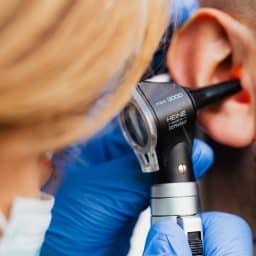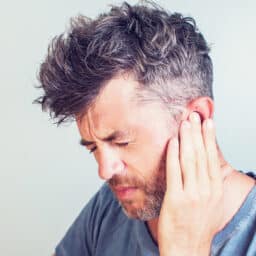Tips for Protecting Your Hearing at Sporting Events

Whether you love cheering on the Dodgers or can’t wait for football season to start so that you can catch the Rams playing at SoFi Stadium, there’s nothing quite like rooting on your favorite team live and in person. While sporting events can be exhilarating, all the crowd noise, music and other sounds in the…
Tips for Building the Best Relationship With Your Audiologist

A study on trends in hearing aid ownership found that “The overall proportion of participants 70 years and older who own and use hearing aids rose from 15.0% in 2011 to 16.9% in 2015 and 18.5% in 2018.” If you’ve decided to start using hearing aids, it’s essential that you begin establishing a strong relationship…
What Are Common Causes of Pediatric Hearing Loss?

The Centers for Disease Control and Prevention (CDC) reports, “CDC data have shown that approximately 1 to 3 per 1,000 children have hearing loss. Other studies have shown rates from 2 to 5 per 1,000 children.” Although pediatric hearing loss is relatively common, the causes aren’t necessarily well-known. In this post, we review some of…
Is There a Link Between Tinnitus and Earwax?

Tinnitus can be caused by a variety of things, from hearing loss to chronic health conditions like diabetes or even certain medications. One common cause of tinnitus that can often be overlooked is having a buildup of earwax in your inner ear. Tinnitus Basics Tinnitus is often described as a ringing in the ears. However,…
How to Plan a Hearing Loss-Friendly Wedding

Did you know that, according to the National Institute on Deafness and Other Communication Disorders, “One in eight people in the United States (13 percent, or 30 million) aged 12 years or older has hearing loss in both ears, based on standard hearing examinations.” If you’re planning a wedding, this is an especially important fact…
Metabolic Syndrome Can Increase the Risk of Hearing Loss

A 2021 study has uncovered a link between two conditions: metabolic syndrome and sudden sensorineural hearing loss (SSNHL). Below we review what metabolic syndrome is, what SSNHL is and what the study shows. What Is Metabolic Syndrome? Metabolic syndrome is a cluster of risk factors related to cardiovascular disease, including diabetes, heart disease and stroke….
Spinal Cord Injuries Can Lead to Hearing Loss

The spinal cord, located in the canal in the center of your vertebrae, is a bundle of nerves that sends messages between the brain and the rest of your body about sensation and movement. Did you know that if you injure your spinal cord, it can actually lead to hearing loss? We review more about…
Ways To Prevent Tinnitus

If you’ve ever noticed a ringing or buzzing in your ears, you’re not alone. This sensation, known as tinnitus, occurs in approximately one in 10 Americans. While some people experience mild symptoms that come and go, others can experience chronic tinnitus, lasting months or even years. Tinnitus is a symptom of many other conditions. While…
New Year’s Resolutions to Make for Your Hearing Health

According to the National Institute on Deafness and Other Communication Disorders, “About 28.8 million U.S. adults could benefit from using hearing aids.” But despite this, only one in five people who would benefit from a hearing aid actually uses one, reports the Hearing Loss Association of America. It’s important to care for your hearing and…
Ways to Extend Your Hearing Aid’s Lifespan

According to the National Institute on Deafness and Other Communication Disorders, “About 28.8 million U.S. adults could benefit from using hearing aids.” If you’re among this population and you wear hearing aids, you may be wondering how you can extend their lifespan. We review tips for this below. Clean Them Daily The single most important…